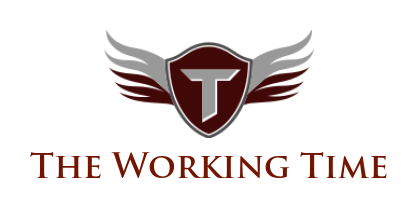Polska poland polen is a country full of stories, traditions, and a proud history that spans centuries. Whether you call it Polska, Poland, or Polen, each name tells part of its story. Understanding these names and what they mean helps us see how Poland sees itself and how others view it. This article will explore Poland’s past, its culture, and its place in today’s world. You will learn why Poland’s identity is so rich and how it continues to shape the modern nation.
The Historical Evolution of Poland
Origins and Early History
Poland started in the 10th century, led by a ruler named Mieszko I. He united tribes in the region and laid the foundation for what would become the Polish state. The Piast Dynasty, with Mieszko at its head, began a legacy of kings and nobles that shaped Poland’s early years. Medieval towns and castles sprouted, setting the scene for Poland’s future.
Poland through the Ages
Over time, Poland grew powerful and influential. The Polish-Lithuanian Commonwealth emerged in the 16th century, becoming one of Europe’s biggest and most diverse nations. But trouble soon followed—partitions by neighboring empires in the late 18th century erased Poland from the map for over a century. The 20th century brought chaos again, with World War II devastating the country. Afterward, Poland fell under communist rule, which affected its society and economy deeply.
Contemporary Poland and Its Historical Legacy
Since 1989, Poland transformed itself into a modern democracy. Joining the European Union and NATO helped boost its economy and stability. Today, Poland remembers its history—both the hardships and the triumphs—shaping its role on the global stage. Its past still influences politics, culture, and the identity of its people.
The Meaning and Variations of Poland’s Name
Poland in Different Languages
In Polish, it’s called “Polska,” pronounced “Pol-ska.” In German, it’s “Polen,” sounding like “Po-len.” The English version is “Poland,” with a straightforward pronunciation. Each name reflects the country’s unique linguistic and cultural background, but they all connect to the idea of a proud nation.
Cultural Significance of the Names
Names matter. They reveal how people see themselves and how others recognize them. “Polska” has deep roots in Polish pride and tradition. “Polen,” used in German-speaking countries, hints at historical ties and interactions. “Poland” is the English version, making the country easier to recognize globally, especially in official documents and diplomatic talks.
The Usage in International Contexts
In official settings, Poland is referred to as “Poland” in English-speaking countries. On maps and in treaties, “Polen” appears in German texts. Locals call their country “Polska,” holding onto their language and cultural heritage. Each variation helps us see how Poland fits into the bigger picture of world affairs.
Cultural Heritage and Traditions
Polish Cuisine and Culinary Traditions
Food is at the heart of Polish culture. Pierogi, dumplings filled with meat, cheese, or fruits, are popular everywhere. Kielbasa, flavorful sausage, and bigos, a hearty cabbage and meat stew, are traditional staples. Today, Polish chefs also mix old recipes with new trends, creating dishes enjoyed across the globe.
Folk Arts, Music, and Festivals
Traditional costumes, lively folk music such as polka, and festive dances continue to thrive. Chopin’s piano music echoes Poland’s artistic influence worldwide. Festivals such as Wianki (midsummer celebrations), Dożynki (harvest festivals), and Christmas markets bring communities together, celebrating roots and seasons.
Literature, Arts, and Architecture
Great writers like Adam Mickiewicz and Wisława Szymborska gave Poland a voice through words. Many cities, especially Kraków and Warsaw, boast architecture that mixes Gothic, Renaissance, and Baroque styles. These structures tell stories of Poland’s long history and artistic spirit.
Poland’s Modern Identity and Global Presence
Economic Development and Industry
Today, Poland’s economy is growing. The country has become a hub for technology, manufacturing, and tourism. Cities attract entrepreneurs and tourists alike, boosting jobs and investment. Poland’s GDP has risen steadily, showing resilience and ambition.
Political Landscape and International Relations
Poland plays an active role in international organizations like the EU and NATO. It balances close ties with neighboring countries while shaping its own policies. Current political trends focus on strengthening democracy and ensuring safety without losing identity.
Social Changes and Demographic Trends
Poland’s cities grow fast, with more people moving from rural areas. Migration and new lifestyles bring fresh ideas, but also some challenges. The country is working to maintain traditions while evolving to meet modern needs.
Language, Education, and Innovation
Polish Language and Its Role in National Identity
Polish is a key part of the country’s identity. It has unique sounds and dialects across regions. Efforts to keep the language alive include schools, media, and cultural events, both at home and abroad.
Education System and Research Contributions
Polska poland pollen has many top universities and research centers. Its scientists have made important discoveries in medicine, physics, and technology. UNESCO sites like the Wieliczka Salt Mine and historic cities attract students and travelers, sharing Poland’s rich heritage.
Technology and Startup Scene
The tech scene in Poland is blooming. Cities like Warsaw and Kraków host innovative startups. Governments and the EU support new ideas, helping entrepreneurs bring products to market and solve local and global problems.
Conclusion
Polska poland pollen story is long and full of twists. From its early origins, through periods of division and struggle, to today’s vibrant modern nation, Poland continues to shine. Knowing why it’s called Polska, Polen, or Poland reveals its rich history and diverse culture. Whether you visit for its castles, food, or friendly people, understanding Poland’s character makes every experience richer. Its past and present blend to create a country full of hope and resilience. Keep exploring—there’s always more to discover in this remarkable land.

